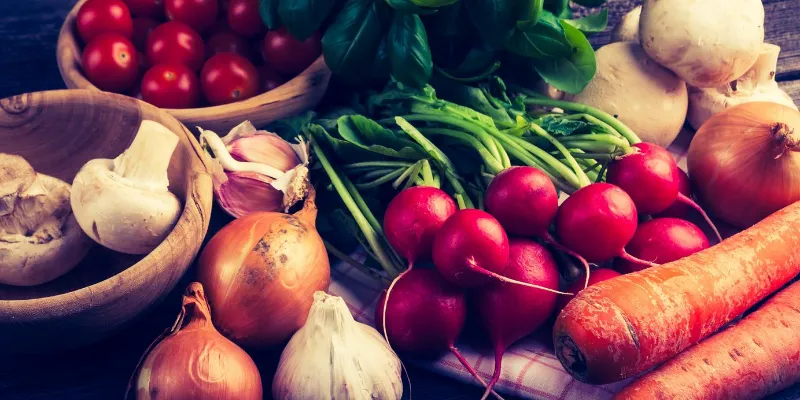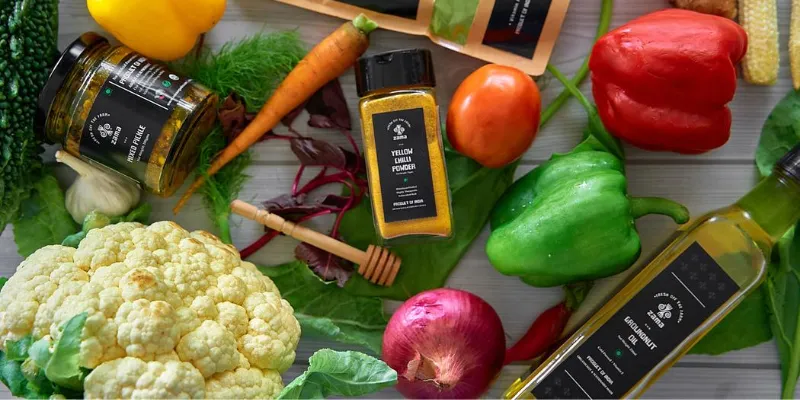This woman entrepreneur works with over 50,000 farmers across India to deliver organic food to your doorstep
Shriya Naheta launched Zama Organics in 2017 with an emphasis on supporting local organic farmers and delivering fresh organic produce to people’s doorsteps.
Shriya Naheta, a first-time entrepreneur is on a mission to create an ecosystem for organic food produce and a collaborative environment for farmers and end customers. Her startup is her first step towards creating this vision.
Shriya launched Zama Organics in late 2017 and began to deliver fresh organic produce and spices in Mumbai. With a network of over 50,000 farmers across India, the Mumbai-based startup offers produce from all across the country.

Shriya Naheta, founder of Zama Organics (Image source: Shriya Naheta)
The startup sources produce from indigenous regions - black rice and tea come from Assam, avocados from the Northeast or South India, mangoes, black pepper and turmeric from the Konkan belt and even works with tribal communities for products like Himalayan pink salt and morel mushrooms.
Her sister’s search for organic produce
In 2015, Shriya had just graduated from the University of Southern California with a degree in Business and International Relations and moved back home to India. She tagged along with her sister who was searching for organic farms for her farm-to-table restaurant venture.
She visited farms in Maharashtra, Shimla, Bengaluru on her sister’s quest.
"It was mind-boggling to see the variety of produce across India's topography. I didn’t think that such produce could be grown in India. It’s funny because we live in an agricultural country, and it’s funny that I didn't associate something like really nice lettuces, very fancy potatoes to grow in India,” Shriya says recounting her experiences.
This eye-opening experience led her to start an agri-business that places emphasis on working with our local produce rather than those sourced from other countries.
Why organic?
Shriya visited several farms, predominantly organic ones over a year-and-half-period. Her interactions with indigenous farmers exposed her to the benefits of organic produce. She saw how organic farming resulted in better produce, better soil health and allowed cultivation of a variety of produce due to crop rotation.
Shriya says that the startup had to invest in educating and creating awareness for customers to understand the benefits of organic food. She says that the process is ongoing with COVID-19 providing a push for people to consume healthier food.

With a network of over 50,000 farmers and tribal communities, Zama Organics provides fresh vegetables, fruits and products like mushrooms from all across India. (Image source: Shriya Naheta)
The added benefits of organic foods led Shriya to enter the Indian organic food market, which reached $69 million in sales in 2019, according to a US Department of Agriculture report. The market is estimated to further rise by 12 percent to $77 million in 2020. Propelled by a surge in demand in the wake of the COVID-19 pandemic, India continues to be the emerging market for organic food and beverages with robust prospects, states the report.
Challenges along the way
“Initially the idea of fresh, clean local produce was very tough to not only sell but procure because we were doing only a couple of deliveries a day, and my volumes were not high enough to bear that transport cost all the time,” says Shriya.
It took time for the entrepreneur to figure out and maneuver through the existing ecosystem and put processes in place to ensure that she could get produce as quickly as possible from farms all the way in Uttarakhand to Mumbai.
With Rs 10 lakh as initial investment, Shriya launched the website in 2017. Today, she has close to Rs 2 crore capital in the business and a B2B and B2C business concentrated in Mumbai with a customer base of over 2,500.
Shriya is now working to create a support system for farmers to help them with training, certification processes, groundwork and more. She hopes to launch the same in November this year.
Zama Organics also works with artisans and self-help groups in Uttarakhand who produce homemade products like pickles, jams, oils, and chocolates. She has recently also started shipping these longer-shelf life products to different cities as well.

Along with vegetables and fruits, Zama Organics offers spices and packaged products likes pickles and oils.(Image source: Shriya Naheta)
The effect of the pandemic
Over the course of the lockdown, the startup's B2B business came to halt and revival has been difficult. However, its B2C business soared as people began eating and cooking healthier food during the pandemic.
Initially, the lockdowns affected the supply of products and procuring out-of-state produce came to a complete stop. The startup has also recently tied up with a retailer in Delhi and hopes to expand its retail footprint in other cities.
Shriya hopes to create an innovative tech-enabled company with implementation of checks and processes to improve overall processes that will eventually benefit not only farmers but all customers.
"We want to create an ecosystem of organic produce from the farms to the consumers and figure out how processes of tech can enable the farmers at the ground level,” says Shriya.
Edited by Rekha Balakrishnan









